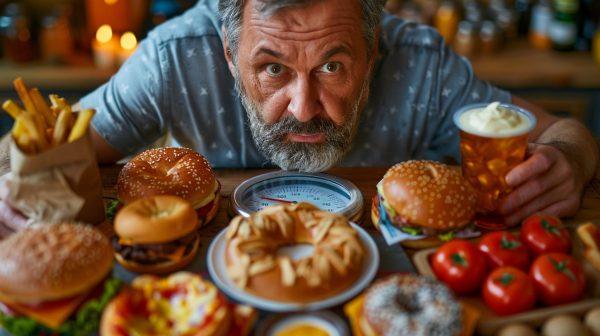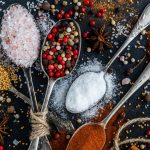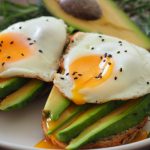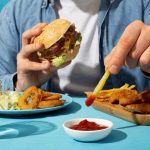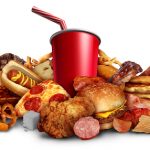Do you have a hankering for something salty or fatty? Are you yearning for something sugary?
It’s easy enough to grab a bag of chips, a slice of pizza, soda or candy bar to satisfy whatever desire you have. And to tell the truth, an occasional treat is no cause for concern. Almost everyone has food cravings now and then.
But what happens if you find yourself craving one or more of these types of food on a daily basis?
I’ve seen it happen far too often with patients who, otherwise, eat a healthy diet. There will be one or two foods they “can’t live without.” So they indulge… then spend a few hours feeling guilty and beating themselves up over it.
In many most cases, it’s not their fault.
What most folks don’t realize is that these extremely crave-able foods are typically high in fat, salt and sugar. These ingredients actually work in tandem to increase your desire for more of them.
This means that every time you give in to one of your cravings, you’re setting yourself up for another one!
Cracking the Code on Food Cravings
You see, these foods alter opioid receptor levels in your brain. This creates feelings of pleasure and euphoria when you eat salty, sugary and fatty foods. Some call this the “bliss point.”
And rest assured. Big food manufacturers know all about the way our bodies react to these foods. They’ve spent years perfecting ways to make processed foods not only more palatable, but also leave you longing for more.
While a bag of chips or a pastry might immediately propel you to your bliss point, these items aren’t real food. They’re a combination of ultra processed ingredients and chemicals designed to “hook” you. (Yes, big food manufacturers are a dressed-up version of the neighborhood drug dealer!)
But you know as well as I do that they aren’t good for you. They’re fattening. They’re inflammatory. They interfere with your body’s natural healing ability. And they place you squarely at risk of chronic disease.
If you try to regularly eat plenty of healthy, organic, plant-based foods, but find yourself craving these other foods far too often for comfort, I have a few tips on how you can reset your bliss point.
It’s Time to Reset Your Bliss Point
Salt cravings. The sodium in processed foods isn’t the kind your body needs. It’s been processed to death and stripped of nutritional value. And food manufacturers use it much too liberally.
Instead, try salting your own snacks and food with sea salt. This is a much more natural form of sodium that still has most of its trace minerals intact. Dash a little on your unsalted pistachios or cashews. You can also slice up a cucumber or avocado and sprinkle sea salt over the slices.
Fat cravings. I have to say, there’s not much you can do to replace the flavor of a pepperoni and cheese pizza. However, it’s easy enough to satisfy your body’s desire for fats.
Nuts, are filled with healthy fats. They’re one of my favorite snacks, any time of the day. Nuts – or even organic nut butter on celery or apple slices – can help feed your late afternoon fat cravings.
Coconut, avocadoes, boiled eggs and hummus are also good snack sources of healthy fats.
Sugar cravings. These are always the worst, but you can get over them by going for natural sources of sugar with whole, organic fruits. Berries, citrus, melons… all of them will give you a hefty dose of natural sugars. And the fiber in the fruit will help make sure the influence on your blood sugar is slow and more sustained than a fruit juice or chemical-laden pseudo-food.
If you’re “go to” sugar fix is a soda – and you just can’t live without having a fizzy drink each day – switch the soda out for sparkling water with several slices of orange, lemon, kiwi or other fruit in it.
Oh! And good news for chocolate lovers. You can still enjoy a little of it every now and then. However, forego the Snickers or Heath bars. Instead, look for a high-quality dark chocolate that contains at least 70 percent cacao. Stick to about 3.5 ounces a week… and savor every second of it.
SOURCES:
Cheren M, et al. Physical Craving and Food Addiction. The Food Addiction Institute. © Copyright Philip Werdell, 2009.
Avena NM, et al. Evidence for sugar addiction: Behavioral and neurochemical effects of intermittent, excessive sugar intake. Neurosci Biobehav Rev. 2008; 32(1): 20–39.
